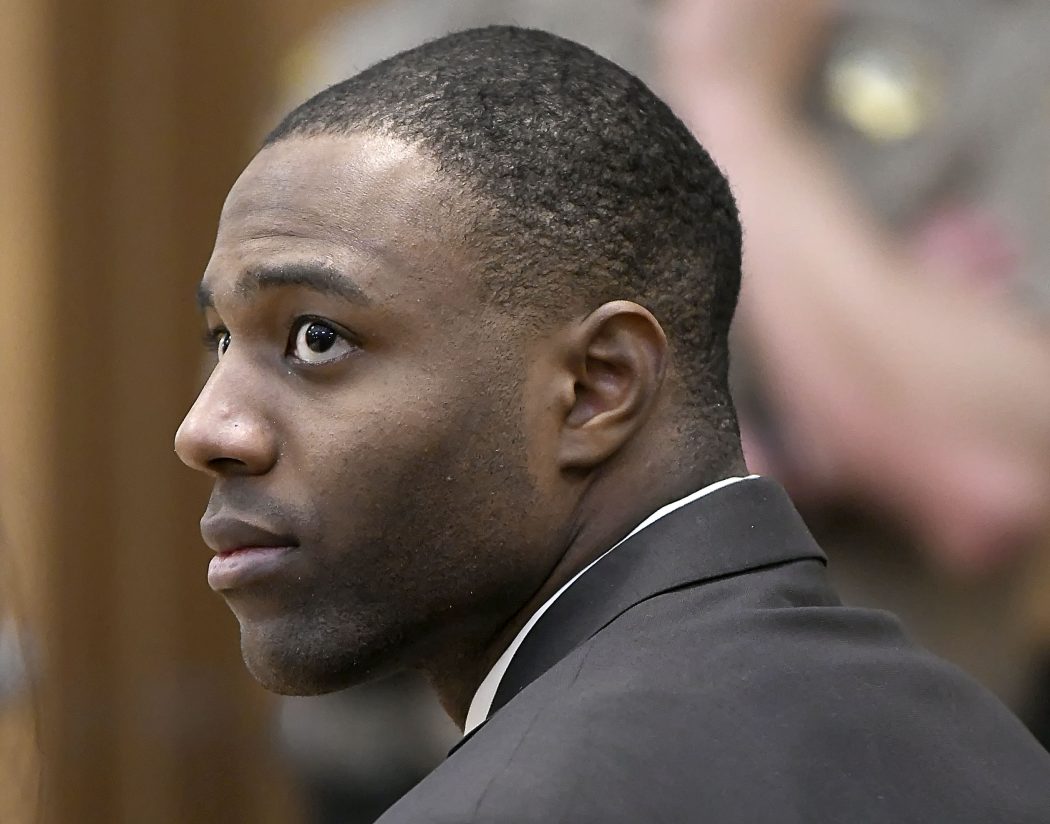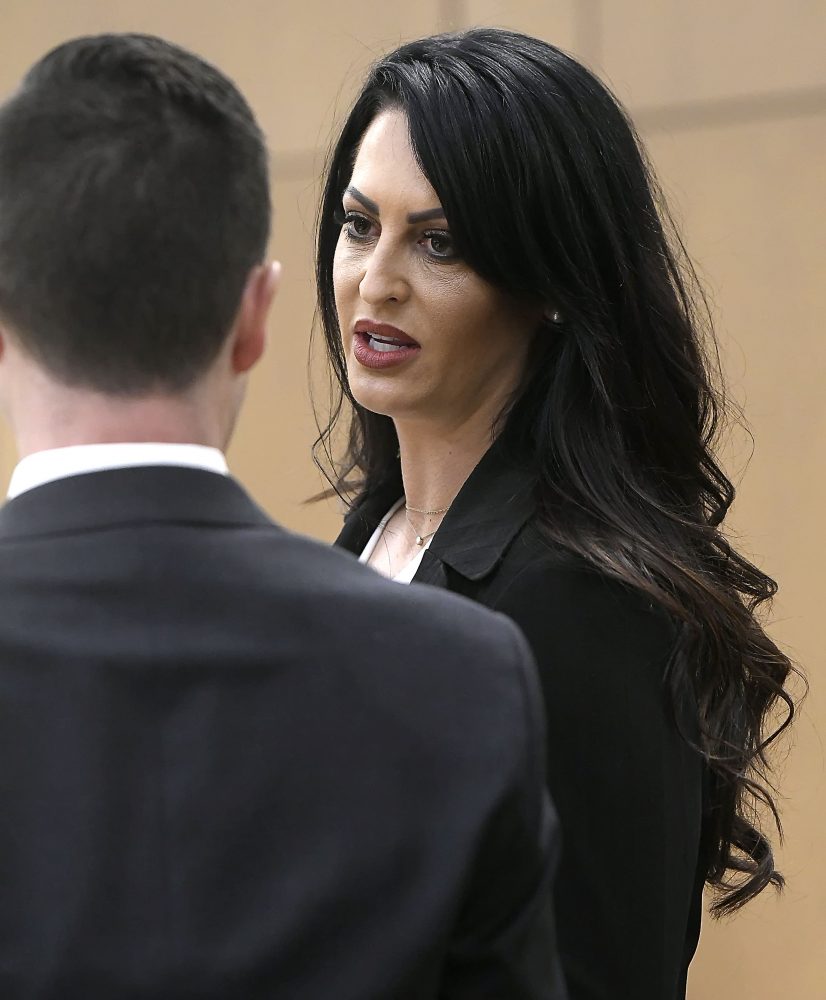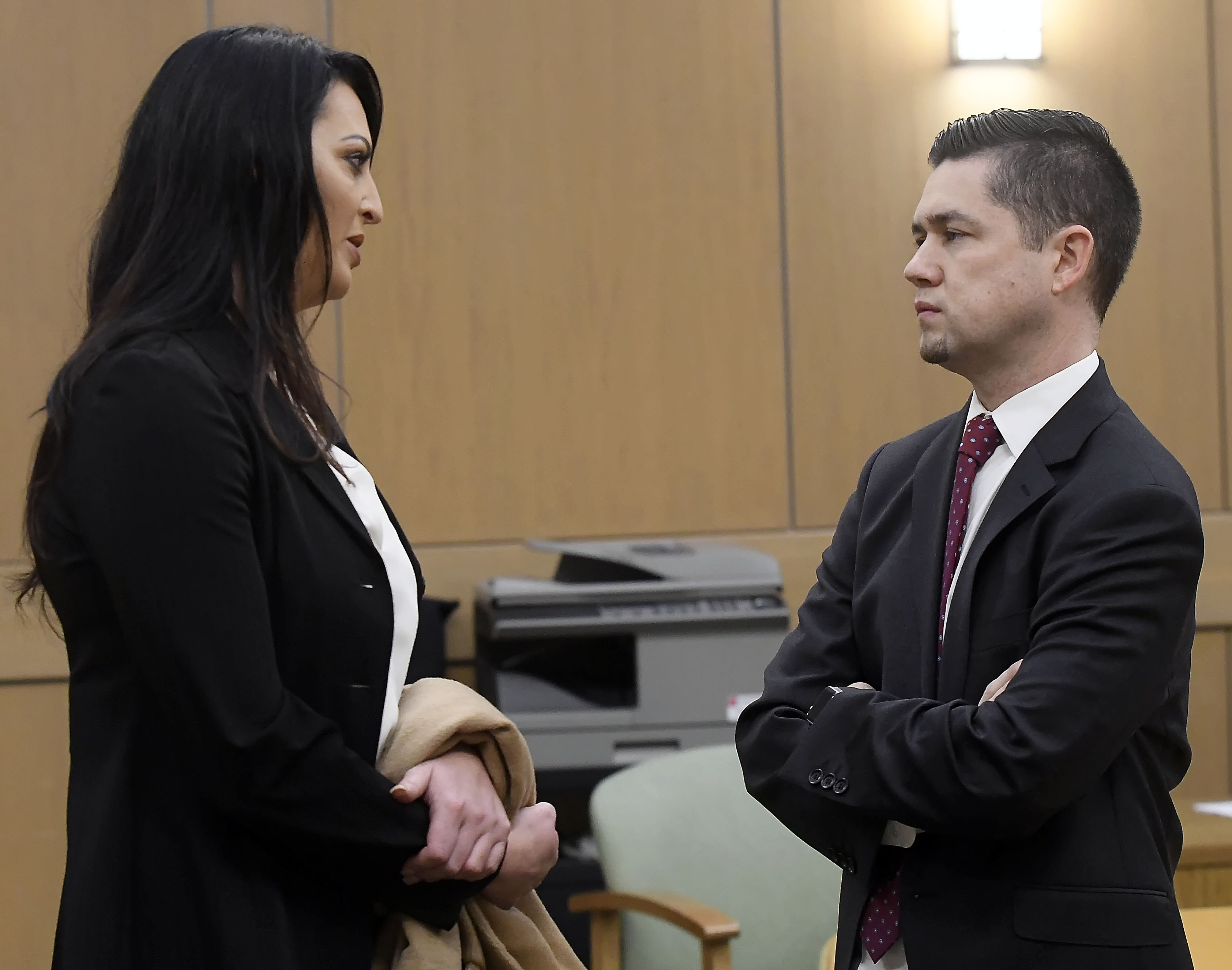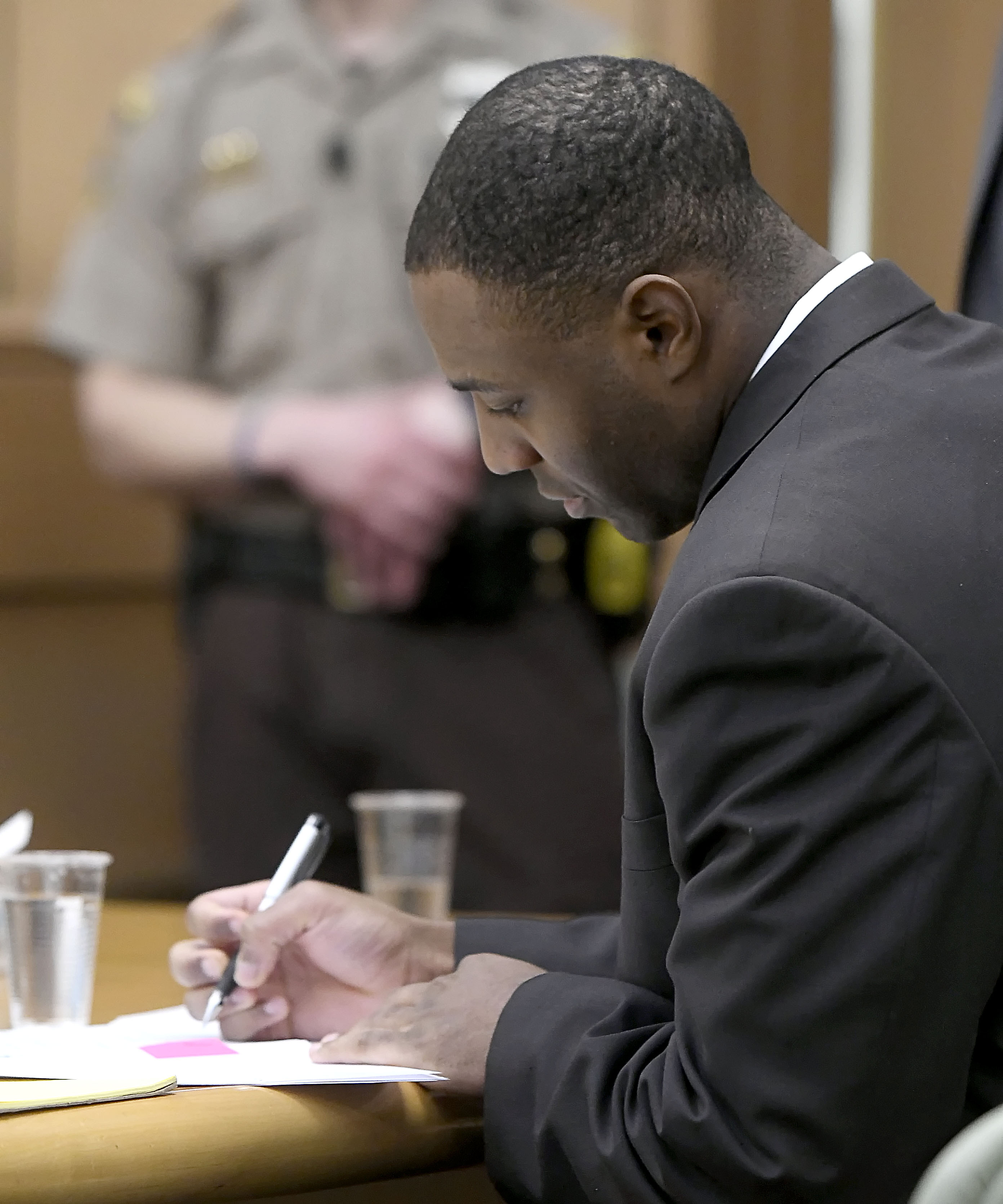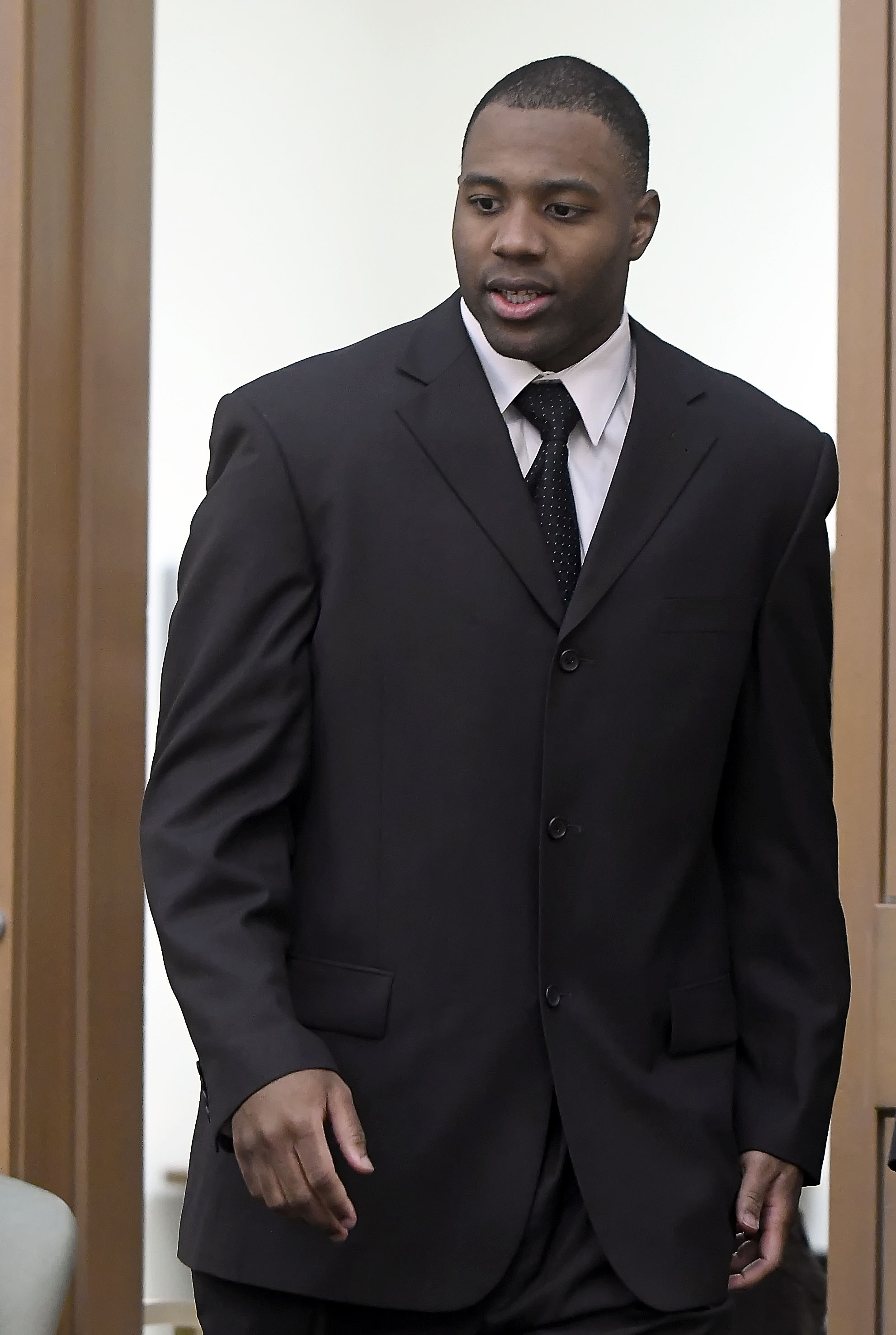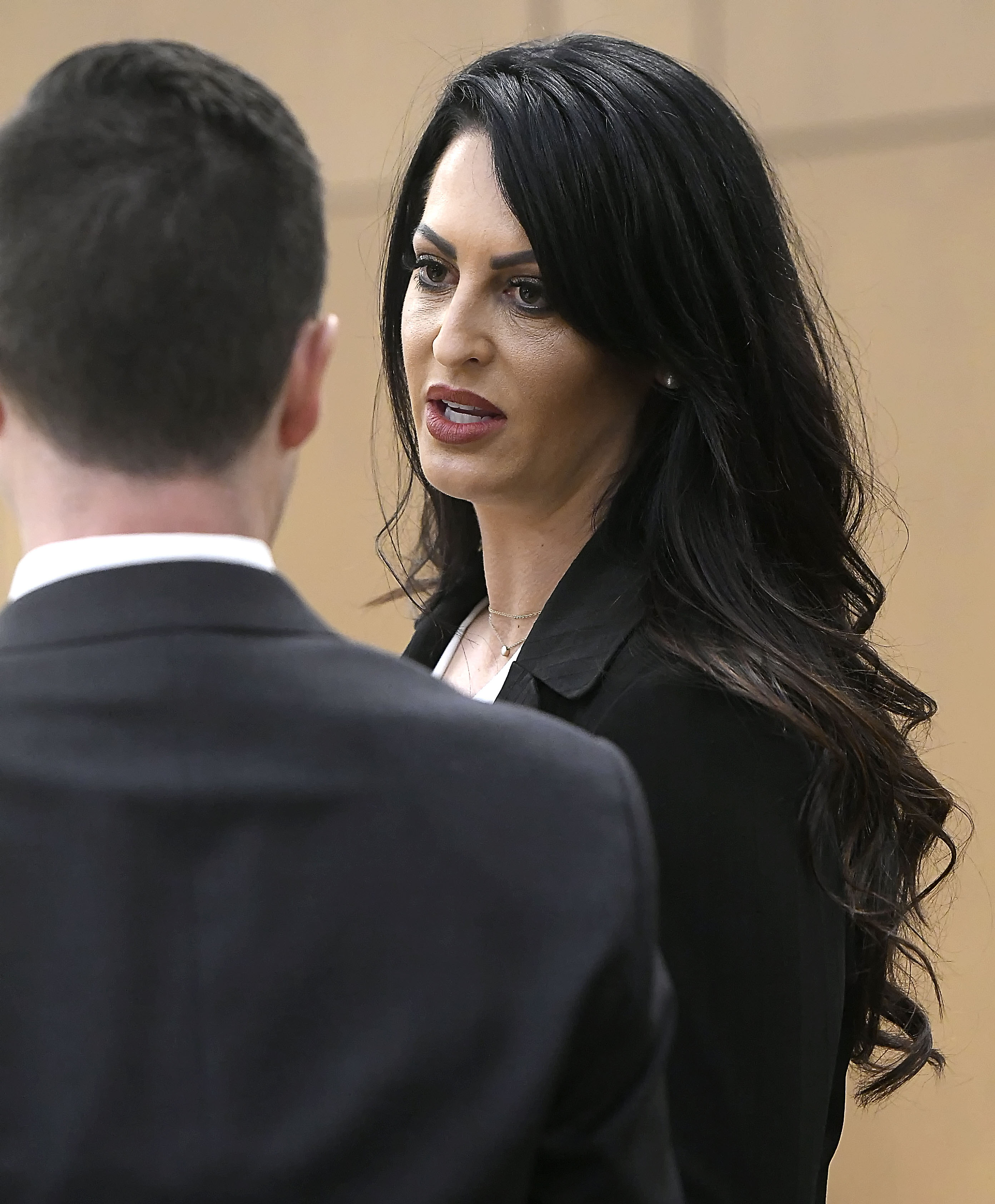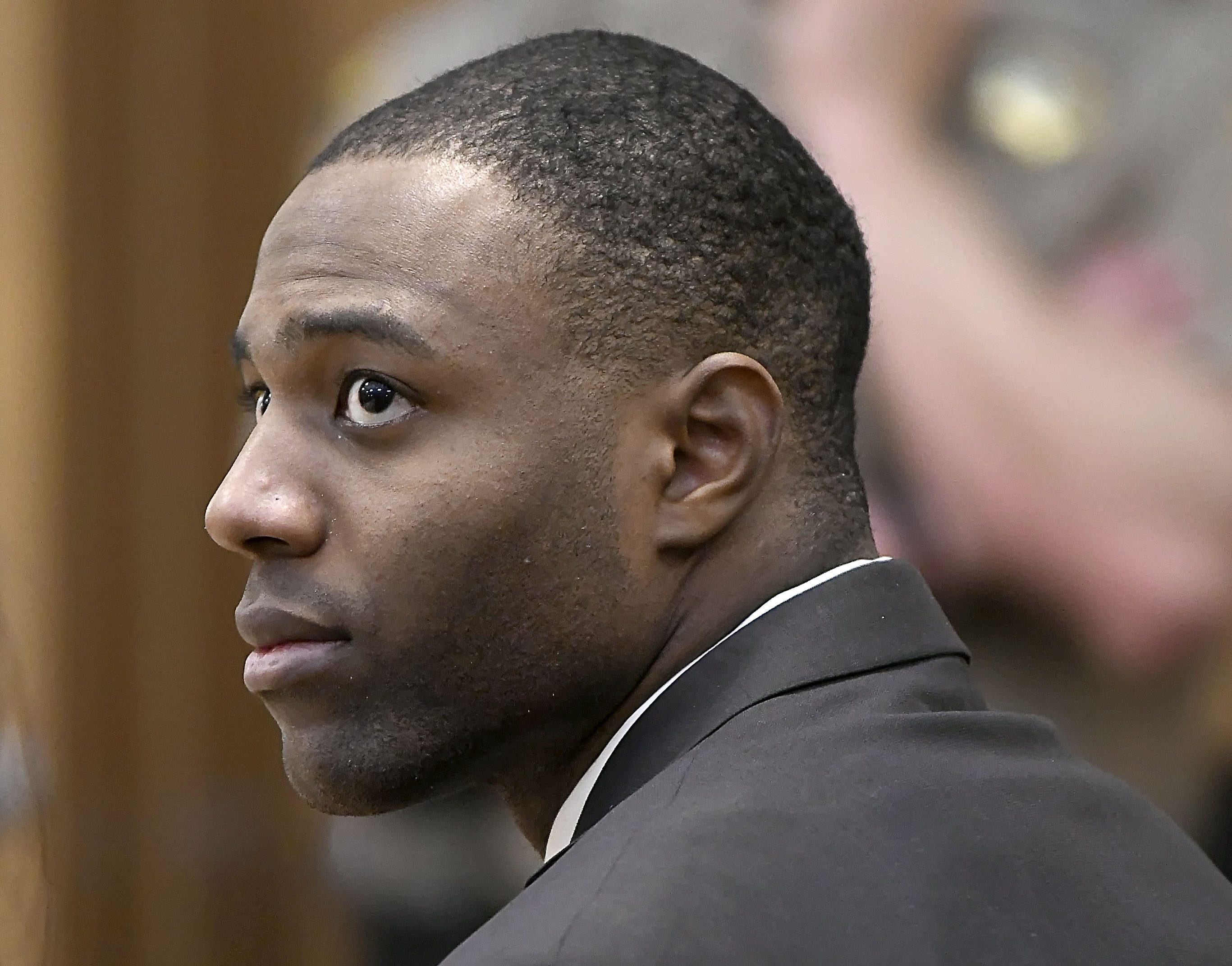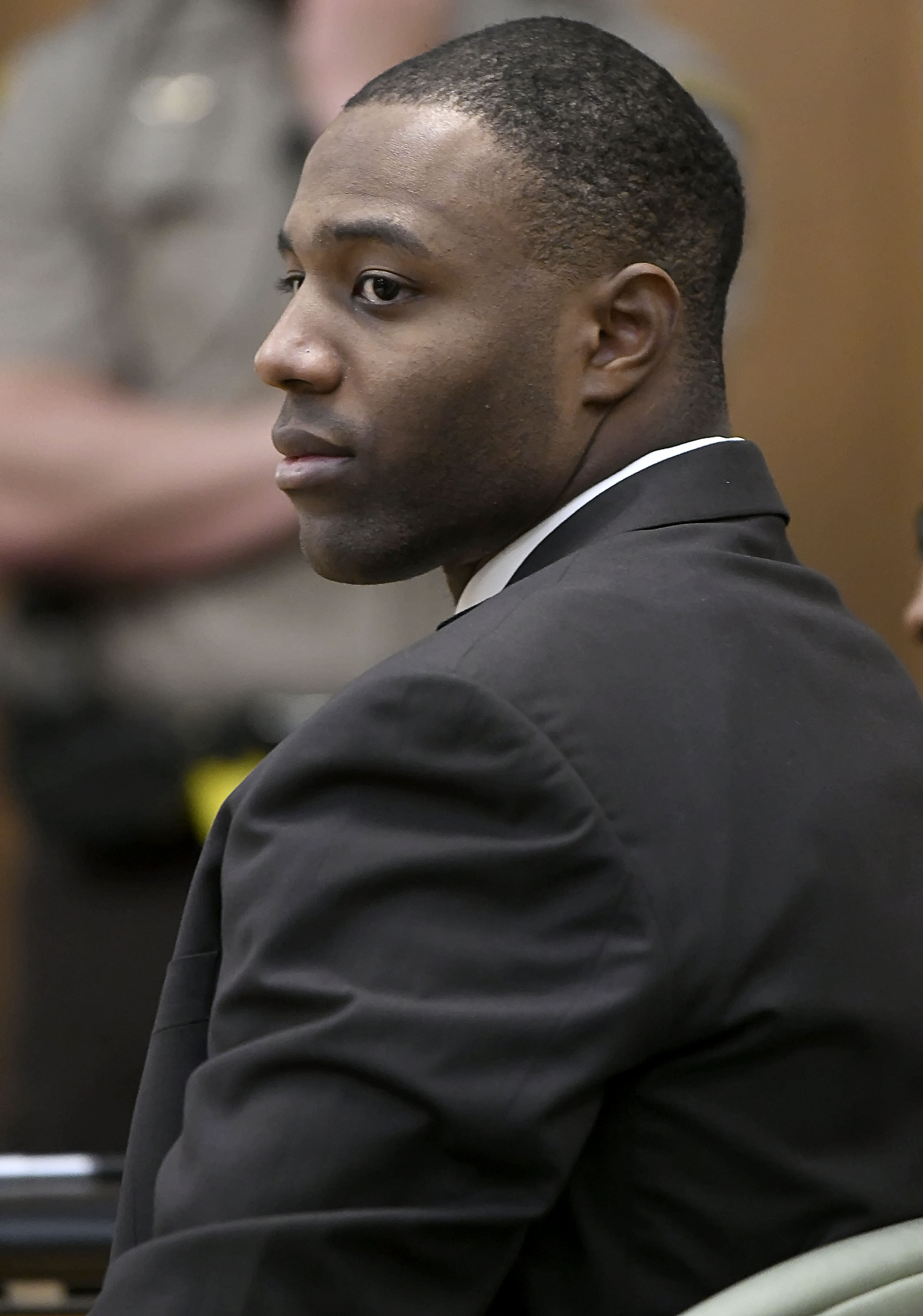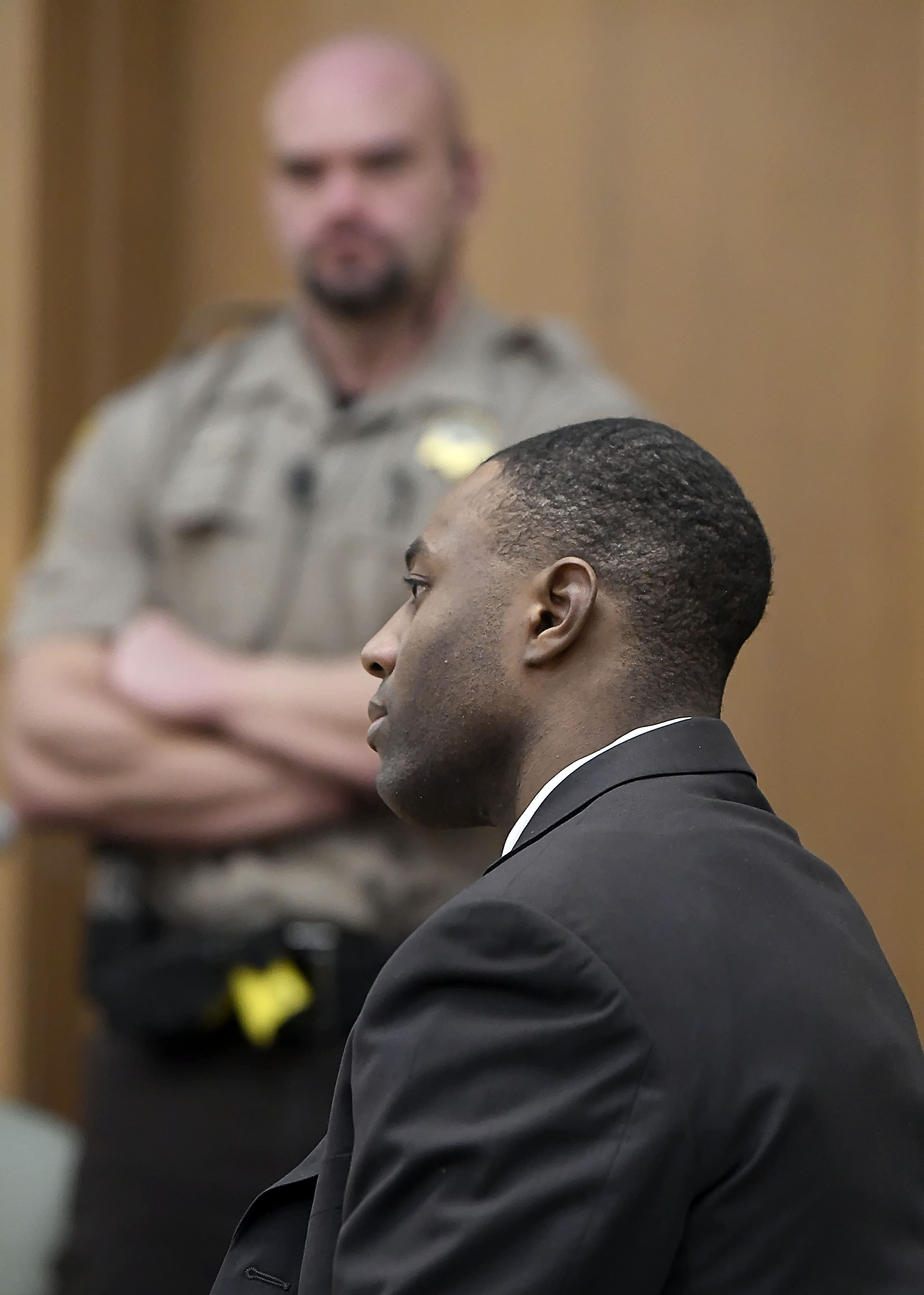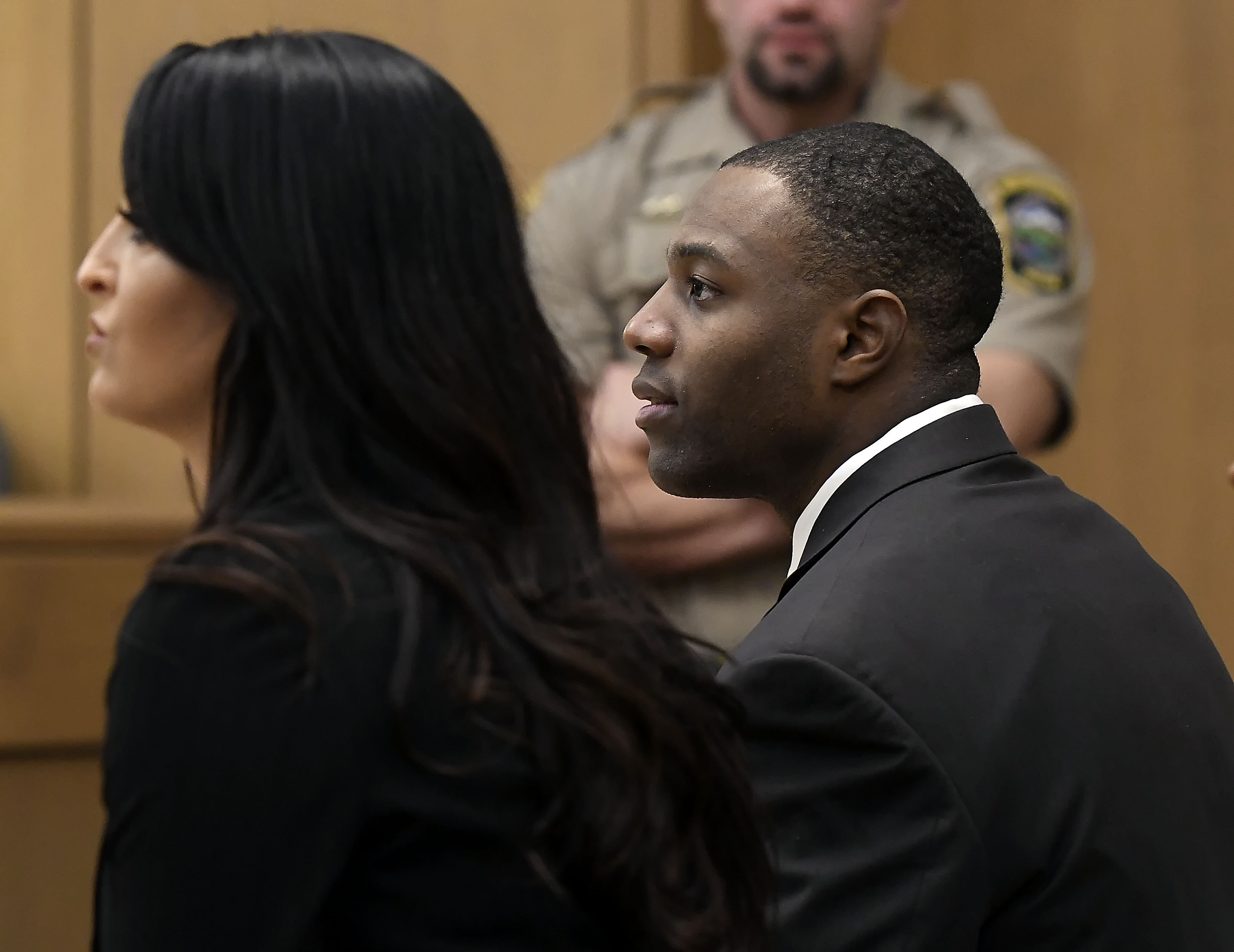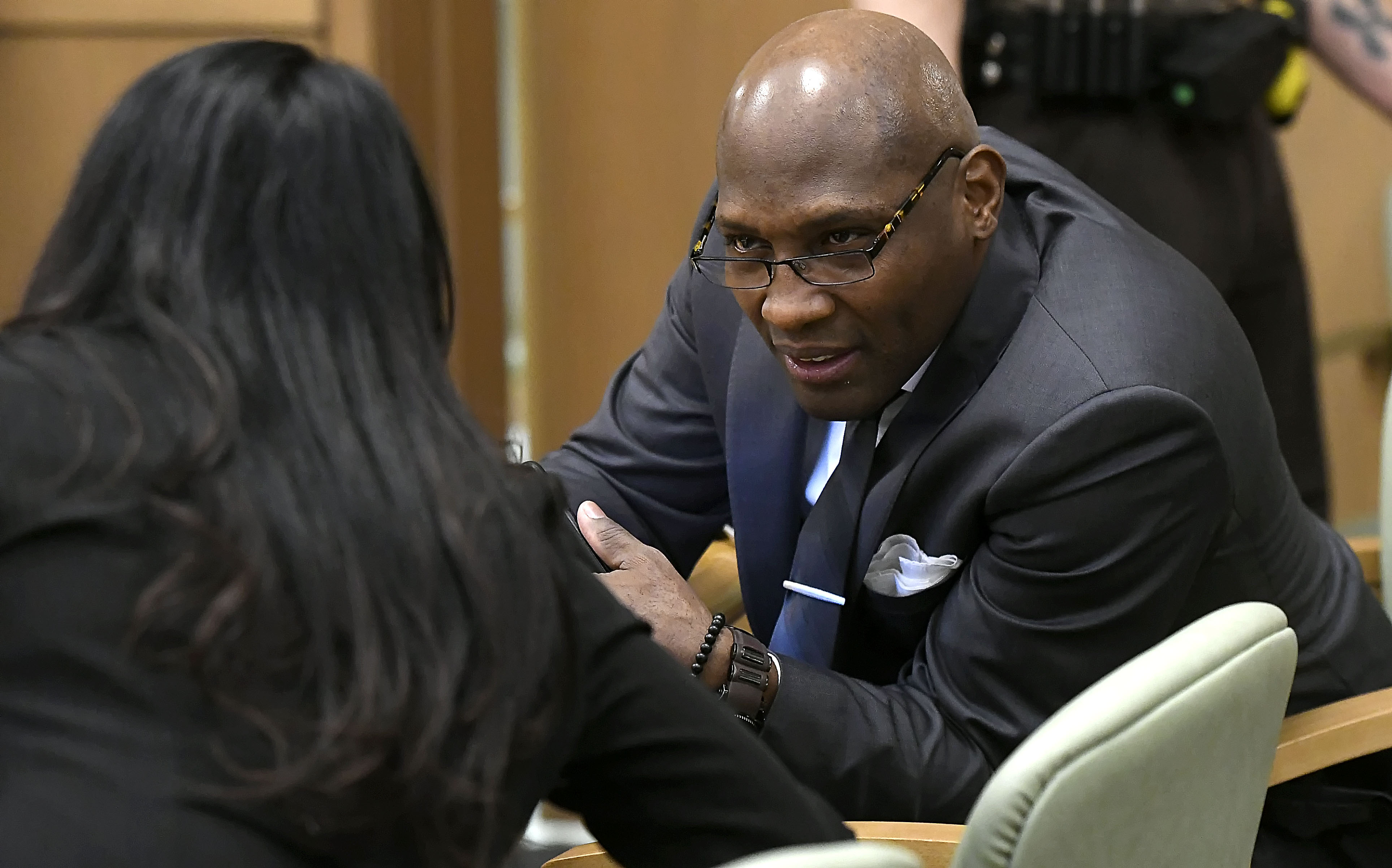“A wolf in sheep’s clothing” — prosecutors say former USU athlete used his charm to lure victims
BRIGHAM CITY — Prosecutors say Torrey Green is a “wolf in sheep’s clothing” who used his charm and good looks to put women at ease before sexually assaulting them.
His defense attorney, however, insists that every alleged victim gave consent but were angry afterward that they didn’t get another date with the former Utah State University linebacker.
More than two years after his arrest and five years after the first alleged rapes occurred, Green stood trial on Monday in Brigham City for sex crimes he is accused of committing against six women during his time at USU.
The first of 15 days scheduled for the trial included opening statements from both the prosecution and defense, testimonies from two of the six “complaining witnesses” and others called to the stand by Cache County Criminal Deputy Attorneys Barbara Lachmar and Spencer Walsh.
In her opening statement, Lachmar laid out each of the six cases against Green, focusing especially on parts of Green’s behavior that seemed similar in each accusation.
According to the prosecution, common themes among the women’s accounts include watching a movie with Green, consenting to some light physical contact, saying “no” when Green attempted to remove clothing, physical struggling, “fight, flight or freeze” responses, pain, crying, and post-traumatic symptoms.
Prosecuting attorney Spencer Walsh, left, talks to defense attorney Skye Lazaro during Torrey Green’s rape trial, Monday, Jan. 7, 2019 in Brigham City, Utah. Green is accused of raping multiple women while he was a football player at Utah State University. (Eli Lucero/Herald Journal via AP)
Skye Lazaro, Green’s attorney, said the six women had various reasons to falsely accuse him of rape — “repairing relationships,” a boyfriend finding out, feeling rejected after not getting a second date — then using the opportunity years later to come forward after they saw other accusations in 2016 news stories.
Lazaro also pointed out that the county attorney’s office chose to not pursue any of the cases against Green until after they received media attention as well.
Before presenting their first case, prosecutors brought in Dr. Kyle Hancock of Mt. Logan Clinic. He explained to the jury how trauma can often cause memory loss of the event — possibly to preemptively counter Lazaro’s later attempts to discredit the witnesses.
In both cases on Monday, Lazaro brought up inconsistencies in witnesses’ accounts they told or wrote to police and friends.
Hancock talked about other ways that trauma can affect one’s body and mind — the brain’s instinct to either “fight, flee or freeze” when one feels powerlessness, depression, flashbacks and other effects on physical and mental health both short and long-term.
The first woman to testify Monday, identified by initials M.H., said Green raped her in his apartment in November 2013. Hers was the earliest alleged rape, but she did not report to police until she learned of multiple other accusers in 2016.
Green and M.H. matched on Tinder, texted, met in public at the library on campus, then at a later date went to his apartment to have dinner and watch a movie, prosecutors said.
M.H. said she couldn’t remember if they were watching a movie or just listening to music, but recalled that Green offered her a back massage on his bed. She agreed, with the condition that her clothes stay on.
Green began the massage, but soon began reaching under her shirt and trying to take it off, M.H. said. She resisted — reminding him that she did not want her clothes off and physically pulling her shirt back down — but ultimately lost the struggle as he got more aggressive, she said.
She continued to resist even as he raped her, she said, both physically and verbally, but eventually gave up and just hoped it would end.
While he was forcibly penetrating her, she said, Green asked M.H. if she was scared.
She said “yes,” hoping it would stop him, but she said it had the opposite effect.
”He seemed to like that,” she said.
After Green stopped, he was watching a YouTube video as she put her clothes back on and gathered her things, M.H. said.
He then made a disturbing comment related to the video he was watching, she said — he told her that he likes sassy black girls because “if you try to have sex with them, you can’t make them if they don’t want to,” and that he respected that.
The comment angered M.H., “because I had just done everything I could to not let that happen,” she said.
She told Andrew Wood, who she had been dating but was on a break at the time, what happened either later that night or the next day, she recalled.
He was furious and punched a hole in the wall of his bedroom after she told him, he testified on Monday.
Attorneys also brought two of M.H.’s friends to the stand to tell the jury about a day in 2016 when a group of their friends was discussing the recently publicized accusations against Green.
During the discussion, M.H. told her friends, that “he raped me too.”
Her friends encouraged her to report it to the police, which she did a few weeks later.
The prosecution portion of Green’s trial continues through this week, and the defense will probably make their case next week, Walsh said.
Green faces a total of 11 charges in this trial: five counts of rape, three counts of forcible sexual abuse, two counts of object rape and one count of aggravated kidnapping.
He faces another rape charge that will be tried separately. A pretrial conference is scheduled Jan. 29.
spencerburt@aggiemail.usu.edu
@SpencerABurt

